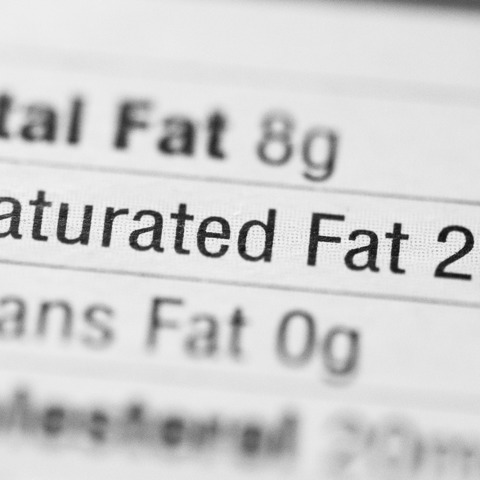
Saturated fat “myths” challenged
People with diabetes have been receiving flawed dietary advice – according to a diabetes education charity.
Claims that saturated fat causes heart disease are wide of the mark, as no research has been carried out to show this is the case.
For people with diabetes, high cholesterol can be a risk factor in developing heart problems. Although saturated fat can raise blood cholesterol levels in some individuals, it is not cholesterol that it the main risk factor.
Dr Trudi Deakin, the Founder and Chief Executive of X-PERT Health, said: "Sure, cholesterol is a key component of the fatty plaques that block the arteries, but you cannot blame the backseat passenger for the car crash."
Dr Deakin added the fatty plaques were not caused by cholesterol: "It's not cholesterol - the ‘backseat passenger in the car'. It's the ‘car' itself - the thing that carries the cholesterol.
“Because cholesterol is a fat it cannot mix with blood, which is water-based, so it is transported by protein carriers known as ‘LDL particles' (low-density lipoprotein).
“Two people may have exactly the same amount of cholesterol carried in their LDL particles, but one person may have it carried in fewer large LDL particles - think of them as trucks - while the other person may have their cholesterol carried in an abundance of small dense LDL particles - think of cars.
“Large LDL particles are too big to leave the blood, whereas an abundance of small dense LDLs are able to slither into the artery wall, cause damage, trigger the body's defence system - an army of white blood cells - and result in inflammation.”

Dr Trudi Deakin, founder and CEO of X-PERT Health (back, centre), with team members at the diabetes education charity's headquarters. Front, from the left: Lisa Graham, Ian Cunningham, Megan Kelly. Back: Helen Knight, Janice Meakin.
Instead, Dr Deakin said that fatty plaques were caused by carbohydrates: “The damaged LDL particles are broken down, releasing the cholesterol, and this gets caught up in the resulting plaques. A good analogy would be that car crashes are more likely when there is an abundance of cars on the road.
“Excess carbohydrate gets converted to fat in the liver and this drives the production of the small dense LDL particles.
“Interestingly, people who consume a higher saturated fat, lower carbohydrate diet actually have fewer and larger LDL particles, which reduces their risk of having a heart attack.”
Cholesterol is essential to life, as it is: part of every cell wall in the body (approx. 70 trillion cells); required to make vitamin D from sunlight; needed to make the sex hormones testosterone, oestrogen and progesterone; a vital ingredient of bile, without which we cannot digest fats; essential for brain function - although the brain only represents about 2-3% of total body weight, 25% of the body's cholesterol is found in the brain. In fact, the best age-related memory function has been observed in those with the highest levels of cholesterol.
X-PERT Health has launched a new series of educational visual aids aimed at raising awareness of the real causes of heart disease and celebrate their 10th anniversary at their Anniversary and Awards Event on Wednesday, 8th July at the Burlington McDonald Hotel, in Birmingham.
I would like to make a regular donation of
I would like to make a single donation of
There are lots of ways to raise money to support
people living with all forms of diabetes.
Bake, Swim, Cycle, Fly ... Do It For DRWF!
Fundraise with us
Recent News


